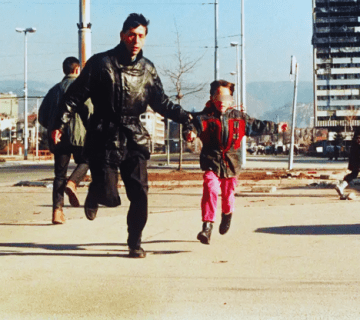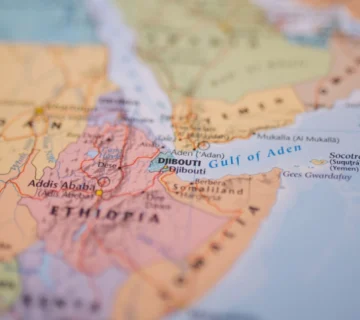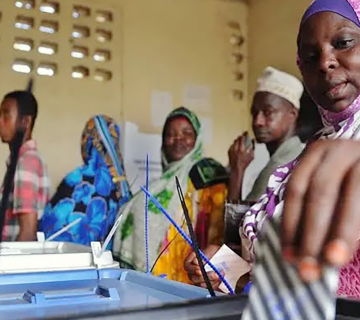The world’s newest Nobel Laureate, Ethiopian Prime Minister Abiy Ahmed Ali, has just received the world’s most prestigious peace award at the Nobel Peace Prize Ceremony in Norway’s capital, Oslo, for – according to the Norwegian Nobel Committee – “his efforts to achieve peace and international cooperation, and in particular for his decisive initiative to resolve the border conflict with neighboring Eritrea”. The recognition and encouragement will bolster his efforts, but Abiy must balance the delicate and complicated task of reforming Africa’s second most populous country without disintegrating it to succeed at cementing his peace-seeker legacy.
Balancing reform with the kind of development that fosters social cohesion in a complex ‘mosaic state’ is no mean feat. This is in part because of the dangers of being misunderstood, or of being perceived as taking sides with one side of the divide at the expense of the other side. Abiy is a young, Muslim Oromo. He assumed power from an Amhara leader, and now governs the estimated (2018) 108, 386, 391 people who make his country the world’s most populous landlocked country. Not all Amharas have embraced the new reality in which the country’s top leader is an Oromo. That security forces in Ethiopia’s Amhara region attempted a coup d’etat against the country’s regional government on June 22, 2019, can be seen as a testament to this reality. Additionally, Abiy’s Oromo-Muslim identity makes him dually part of the country’s ethnic majority, and religious minority. In addition to the occasional ethnic tensions between Oromos and Amharas (Ethiopia’s second largest ethnic community), and religious tensions between the Christian majority (Ethiopian Orthodox Christians, protestants, and catholics) and Muslim minority seem to be increasing. Scores of churches, mostly Ethiopian Orthodox ones, have been attacked and burnt, some to the ground, this year alone.
Abiy’s Quick and Decisive Model
Within the first 100 days that his political party (Ethiopian People’s Revolutionary Democratic Front, EPRF) taking office, Abiy initiated at least seven major political reforms in Ethiopia. He: ended an existing state of emergency, offered amnesty to thousands of political prisoners, encouraged press freedom, legalized outlawed groups, dismissed corrupt government officials, and allowed women more space in Ethiopia’s socio-political landscape, electing a female president. Extending amnesty to combatants in exile remains a thorny issue in the greater Horn of Africa region. This is mostly because such programs have tended to help rehabilitate and reintegrate ex-combatants into society, at the expense of survivors. The same society that in most cases suffered because of the activities of such groups. Cases where both ex-combatants and survivor of activities of armed groups benefit from amnesty-related programs in the region remain few. To the extent that EPRF bears the tag of a former coalition of rebel forces, the amnesty, coupled with the legalizing of outlawed groups can be interpreted as efforts to sanitize EPRF.
Beyond the first 100 days, Abiy embarked on another fast-tracked peace-seeking mission in the greater Horn of Africa region. When Eritrea gained independence from Ethiopia in 1991, Ethiopia became landlocked. The contest over their shared border frosted Eritrea-Ethiopia relations further. In under two years of his rule, Abiy has succeeded in thawing relations with Eritrea. He also offered to mediate the Kenya-Somalia maritime boundary dispute in July 2019, and helped to end a stalemate between Eritrea and Djibouti in September 2019. His mediation efforts have also helped to secure South Sudan’s peace processes, forestalling further deterioration of social, economic, and political conditions in Africa’s newest, conflict-ridden state. Abiy’s efforts can be read in three ways: his actions may be motivated by either internal and regional peace, Ethiopia’s development, or a combination of peace and development. Whichever way, Abiy seems to understand the peace-development nexus. Externally, as the Eritrea and Djibouti cases demonstrate, he has pursued peace for development. The Ethiopia-Djibouti speed train line is now operational, opening Ethiopia to the Red Sea. Internally, he has largely adopted both development for peace, and peace and development.
There have been worries that the blistering pace of such reform will unravel the somewhat fragile politico-social fabric of Ethiopia. Ethiopia’s ethnic federal state model contrasts quite sharply with democratic values. For example, a few states have expressed their desire to secede from Ethiopia, citing the provisions of the Ethiopia’s Constitution for people to do so. The young leader has not yet fully resolved Ethiopia’s youth unemployment problem. At least 25 percent of young individuals are not gainfully employed in Ethiopia’s economy, according to the 2019 World Fact Book. Although the extent to which the dismissal of corrupt government officials to reduce illicit financial flows, bribery, money laundering, and tax evasion will improve the economic outlook of Ethiopia in general, and the youth in particular, is not yet clear, Ethiopia’s standing in the corruption index increased marginally in 2019, by one digit from Transparency International’s 2018 placement. At the same time, the youth are not adequately represented in Ethiopia’s political landscape is rising. To this demography, Abiy is not handling these two matters with sufficient sense of urgency. This may explain why the qeerroo (political movement of young Oromos advocating for change) is gaining currency in Ethiopia.
Abiy, the 134th Nobel Peace Laureate, is now also the third individual from the greater Horn of Africa – after the late Prof. Wangari Maathai, and Dr. Dennis Mukwege – to win the Nobel Peace Prize this decade. The world will be watching to see the extent to which this award will embolden Abiy to extend his border conflict resolution streak to the Kenya-Ethiopia-South Sudan one over the Elemi Triangle, for example. Abiy cannot achieve peaceful coexistence, and social justice, and resolve the internal and external issues that affect the peace and stability of Ethiopia and the region by himself. Peace-loving individuals, organizations, and governments must back up his peace-seeking efforts by supporting negotiation and mediation initiatives in and beyond Ethiopia. This way, Abiy’s success will become the success of the greater Horn of Africa region that will benefit from enhanced peace and security.
Roselyne Omondi is Associate Director, Research, at the HORN Institute.



